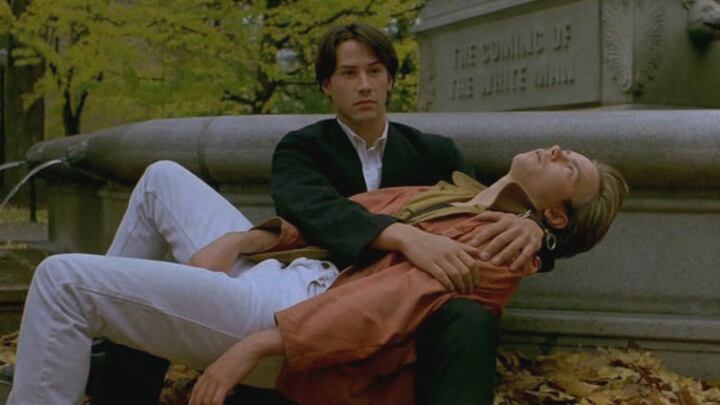When filmmaker Matt McCormick moved to Portland in 1994, the city's independent movie scene was booming. Miranda July also relocated to Portland that year, and Gus Van Sant released Even Cowgirls Get the Blues, his follow-up to My Own Private Idaho.
But McCormick is reluctant to get too nostalgic about the era in which he came up. "[It's] a little bit naive and self-centered to point to, say, 1992 and say, 'That's Old Portland,'" says McCormick, "because I'm sure there would be someone who lived in Portland in the '60s, '70s, '80s who would tell that person that they were full of shit."
That ambivalence courses through Portland 90, a McCormick-curated series of '90s shorts and movie excerpts by Portland filmmakers that include Van Sant, July, Vanessa Renwick and McCormick himself.
The compilation is a firsthand time capsule of a particularly fruitful moment in Portland's long history as a haven for independent filmmaking. But Portland 90, which will screen at McCormick's Boathouse Microcinema, is not purely reverent. Many of the films paint an unsentimental portrait of Portland during the '90s, counteracting the allure of what McCormick describes as the trap of putting "too much emphasis on a time when things were 'good and pure'" and assuming "that they are no longer that way."
The series includes outtakes from Van Sant's My Own Private Idaho that were shot at a much seedier Chapman Square and nine minutes from Renwick's documentary Lovejoy, about the battle to preserve the legendary Lovejoy Columns. "What I was looking for was a collection of films not just made in Portland, but films that somehow showcased the landscape, the culture, films that gave us a sense of what was going on in Portland at that time," McCormick explains.
The films of Portland 90 are also infused with a "scrappy, DIY spirit" that McCormick misses in the age of digital editing. Some of the films were shot on grainy 16 mm and Super 8. Particularly scrappy is a short called Atlanta by July. "She was literally making movies by editing two VHS tapes between two VCRs," he says. July plays many of the radically different characters in Atlanta—a 12-year-old, Tonya Harding-like Olympic skater and a mother with ferocity to rival LaVona Golden's.
Yet there are also films in Portland 90 that paint a harrowing, occasionally horrifying portrait of time passed. High Rocks, a documentary by Jason Blalock about deadly cliff-diving in Gladstone, weaves a narrative of alcohol-fueled antics that is both transfixing and sickening. And McCormick's documentary The Subconscious Art of Graffiti Removal powerfully argues that the destruction of art can be an art in and of itself—an idea that complicates Portland 90's retrospection.
The transformation of art is the concept at the core McCormick's film, and a theme that runs through the entire program. The purpose of Portland 90 isn't to indulge a voyeuristic desire for a city long gone, but to foster a greater historical consciousness. "I think that's something our society tends to have a real problem with," says McCormick. "It seems like we go in these cycles where we just repeat the same thing over and over and are surprised when problems reappear."
McCormick knows he won't be the last programmer to assemble a paean to Portland's past. "I still think Portland's an amazing city, and I have lots of hope for it," he says. " I also know it's going to continue to change. I'm sure 20 years from now there will be people sitting back and thinking, 'Oh, remember back in 2018? Remember how great it was?' And I hope that people will put together programs and look at work from this time and think about how it shaped the contemporary culture of whatever time they're in."
SEE IT: Portland 90 is at Boathouse Microcinema, 822 N River St., boathousemicrocinema.com. 7:30 pm Saturday, April 14. $15.
